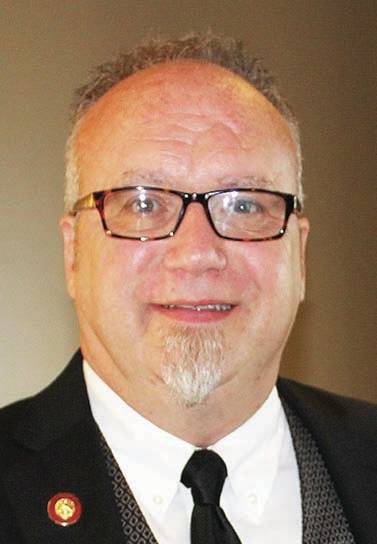In the era of ‘fake news,’ journalists work hard to earn public’s trust
Published 6:03 am Wednesday, October 3, 2018
When President Trump’s job-approval numbers fell recently, it pleased me, and not just because I think he is unfit to lead us. I hoped the polls were indications that more Americans see him that way, and – here’s my fresh hope – that they were reaching that conclusion because of journalism.
The two biggest pieces of journalism that may have had an impact on those polls were not traditional forms of the craft, and they still leave some journalists uneasy.
The first piece (actually several advance excerpts) was Bob Woodward’s book, “Fear: Trump in the White House,” which paints a chilling picture of an impulsive, egotistical, uncurious president and a shaky ship of state. (Senate Majority Leader Mitch McConnell of Kentucky makes an appearance, with his phone calls thanking CEOs for quitting some Trump panels after he equated protesters in Charlottesville, Virginia, with Nazis. McConnell has declined to comment.)
The book was essentially corroborated by an anonymous op-ed column in The New York Times from “a senior official in the Trump administration,” who wrote that he or she was among “many” Trump appointees who are “working diligently from within to frustrate parts of his agenda and his worst inclinations… . The root of the problem is the president’s amorality,” a lack of guiding principles.
More than most, these examples of journalism ask us to place our trust in the journalists: Woodward, probably the nation’s most well-known reporter, and the lesser-known Times editors who decided to publish the piece without further attribution than “senior official.”
Times Op-Ed Editor Jim Dao wrote that the piece “offered a significant first-person perspective we haven’t presented to our readers before” and that the Times didn’t further define “senior official” because it could have led to identification and reprisal. That’s a common standard for use of anonymous sources; the biggest is that the information can’t be reported otherwise.
In this case, motive must be considered. Dao wrote, “We concluded that the author’s principal motivation was to describe, as faithfully as possible, the internal workings of a chaotic and divided administration and to defend the choice to nevertheless work within it.” I know Jim Dao and trust him.
Woodward, whose reporting on the Watergate scandal for The Washington Post relied heavily on unnamed sources, has taken them to a new level in his books. His method is “deep background,” in which sources are not named but their information is presented as fact, forsaking journalism’s traditional principle of attribution.
Woodward says he doesn’t like the term “anonymous sources” because he knows who they are. In saying that, he is asking his readers to place in him a remarkable level of trust.
Journalists attribute information to make our stories trustworthy. It’s part of our discipline of verification. Attribution answers the reader’s question, “How do you know this?” Woodward’s answer is, essentially, “You can trust me.”
Perhaps no other journalist could make such a request stick, but I think Woodward can. His books have proven solid, and his track record goes back 46 years. He has earned trust.
But for most journalists these days, earning and keeping trust is more difficult because we face a headwind of bluster from Trump and his allies in partisan media. They counter legitimate, hard-nosed reporting on the administration with the “fake news” meme and other spin, and about a third of the electorate appears to prefer their propaganda to the truth. They question the basic premise of journalism. Trump is waging “a war on truth,” Woodward said on MSBNC’s “Morning Joe” Wednesday.
Read more: Has Mitch McConnell given in to President Trump to save poll ratings?
See also: Naughty and nice Kentucky politicians get their gifts and take their lumps
McConnell and most other establishment Republicans don’t sing this tune, but the attitude has crept into Republican campaigns.
When Lexington Herald-Leader political writer Daniel Desrochers tweeted Monday that an ad for 6th District U.S. Rep. Andy Barr, against Democratic challenger Amy McGrath, was misleading, state GOP operative Tres Watson replied, “You writing ads for her now?” I told him in a tweet that his was “an affront to people who perform journalism in the service of democracy.”
Watson replied that he “had an issue with the tone” of the tweet, which began: “So this is misleading.” That’s fine for social media, and the preface of “So” softened the tone. (Desrochers followed up with a story.) Watson acknowledged, “Journalists are in a difficult spot these days but tone matters, whether it’s how a writer meant it or not.”
Yes, journalists are in a difficult spot. Our business platforms are eroding, and people get most of their information from social media, which lacks our discipline of verification. We make mistakes, and our critics magnify those mistakes to falsely characterize all our work. We must work every day to earn and keep your trust. All public servants should.
Al Cross, former C-J political writer, is director of the Institute for Rural Journalism and Community Issues and associate professor in the University of Kentucky School of Journalism and Telecommunications. His opinions are his own, not UK’s. This column previously appeared in the Louisville Courier-Journal.






